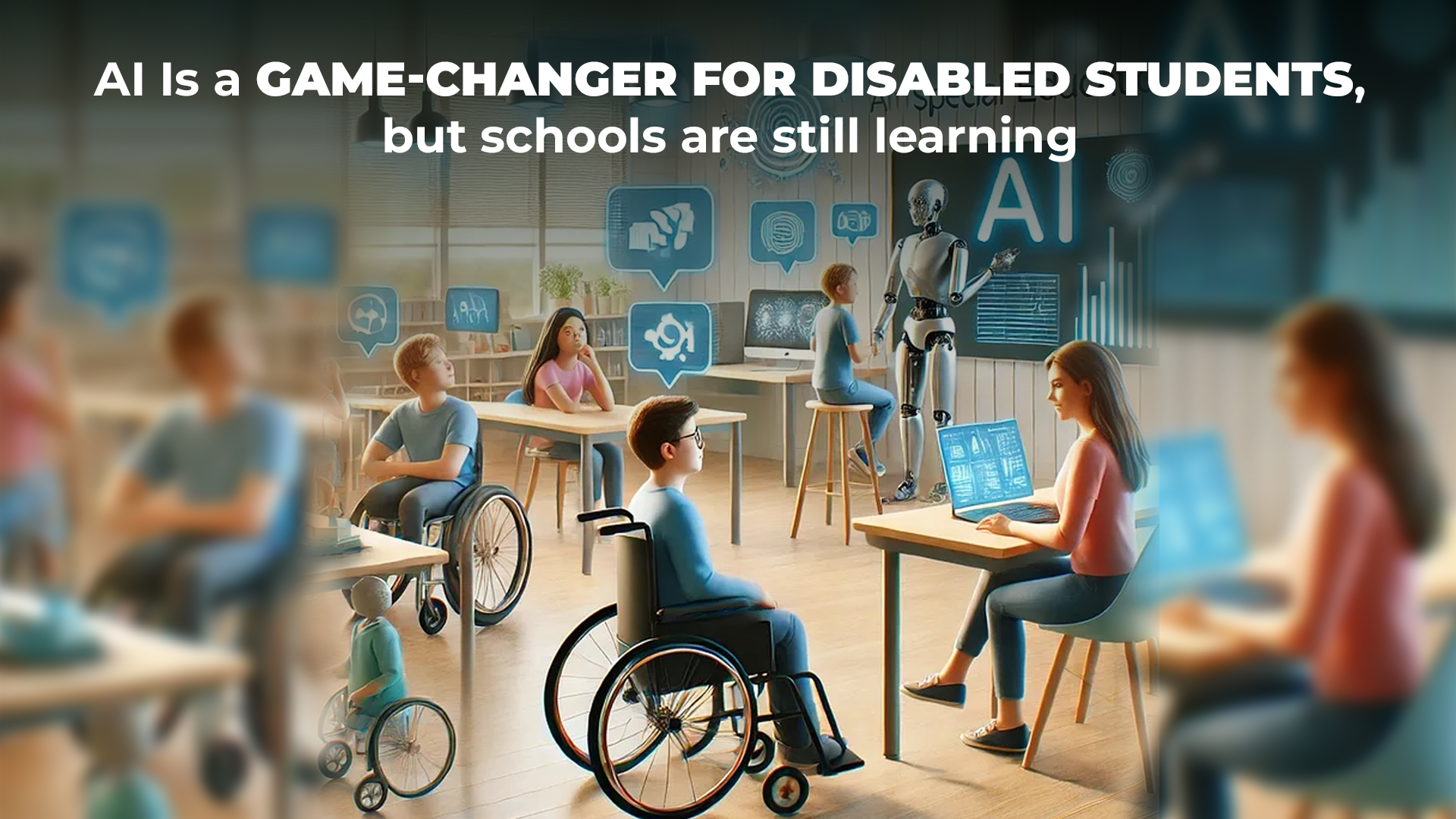By Prasenjit Das

Recent research and expert opinions suggest that AI (artificial intelligence) has the potential to transform education for students with different disabilities including visual, speech, language, and hearing impairments. However, schools are still in the stage of understanding and implementing AI-powered technologies.
For Makenzie Gilkison, a student in the National Junior Honor Society spelling is such a struggle that a word like rhinoceros might come out as “rineanswsaurs” or sarcastic as “sarcastic. Reading is a significant challenge for this 14-year-old from suburban Indianapolis. Although she can verbalise words, dyslexia makes the process very exhausting for her as it impacts her ability to understand what she reads.
Gilkison, while recalling her early childhood years, said “I just assumed I was stupid,”. She thanked AI-powered assistive technology, a word prediction program and other tools for enabling her to succeed academically.
“I would have just probably given up if I didn’t have them,” she added.
AI has the potential to significantly assist students with various disabilities in performing tasks that may be challenging for them. While schools in the United States are still exploring the best methods to integrate AI, many are prioritising its use to support students with disabilities.
US Education Department is prioritising accessibility of the latest tools like text-to-speech and alternative communication devices for students with disabilities.
Overall, AI has the potential to revolutionise education for disabled students. In India, if schools overcome the challenges and embrace AI benefits, it can also create an unbiased and inclusive learning environment for all students including those with disabilities.